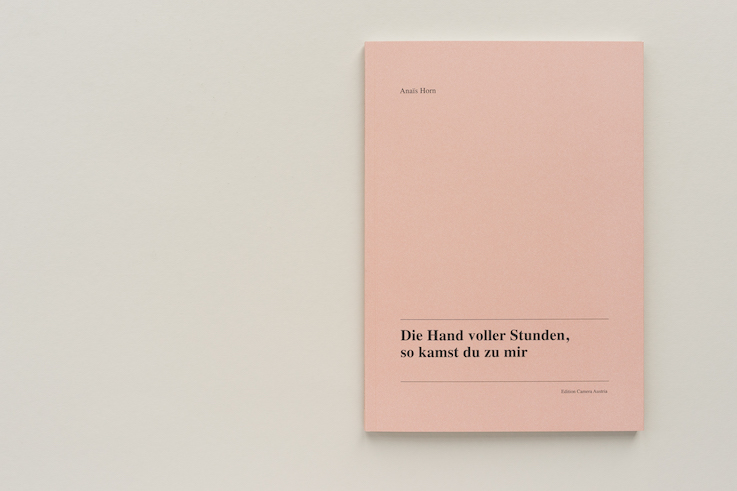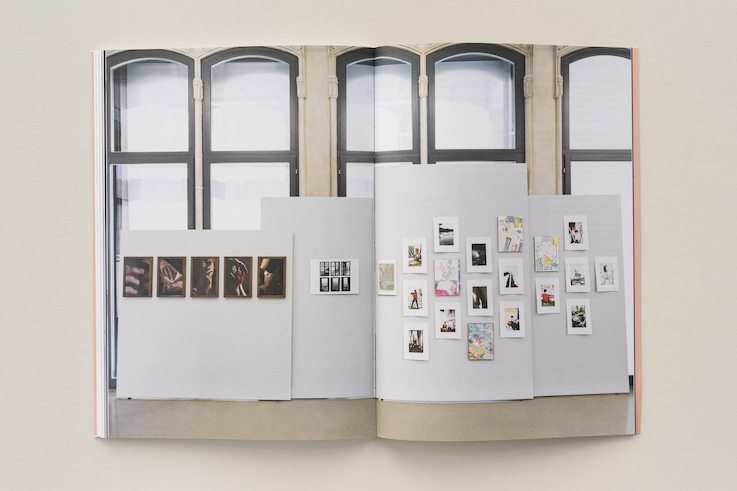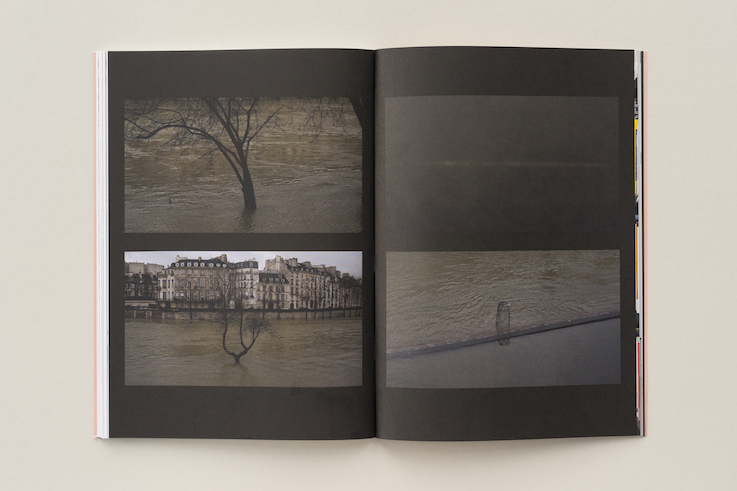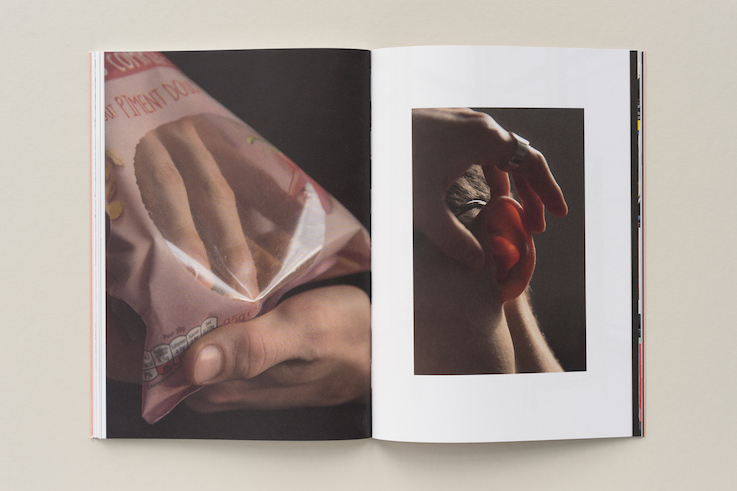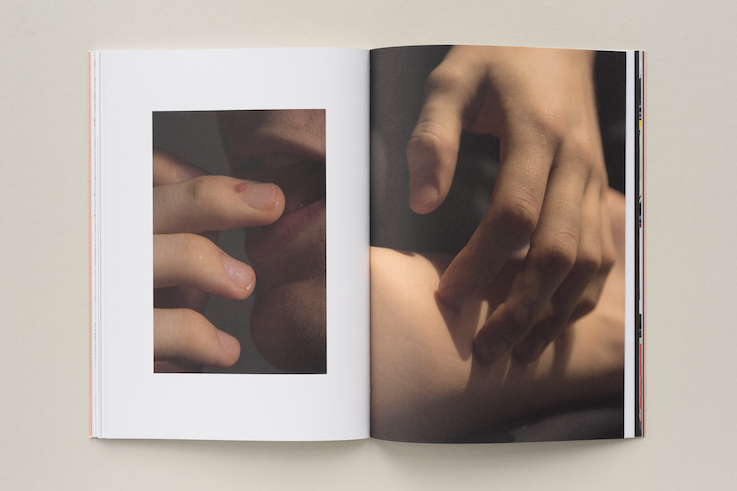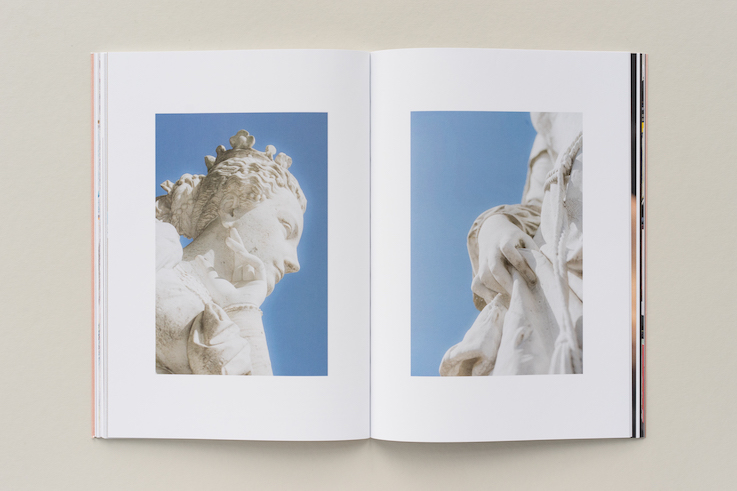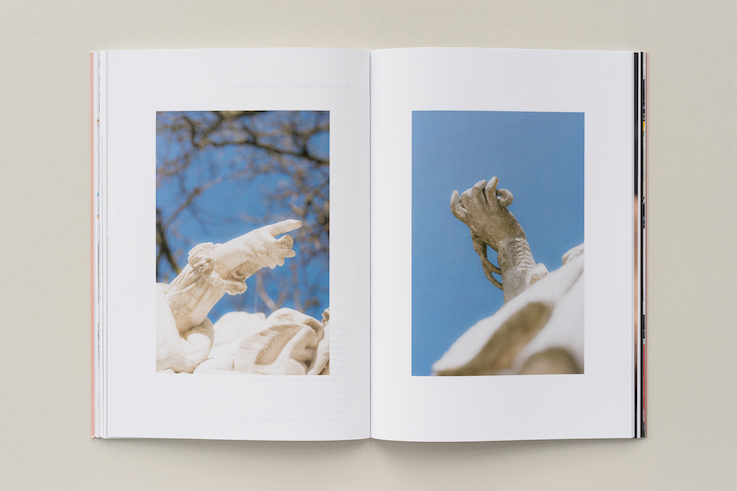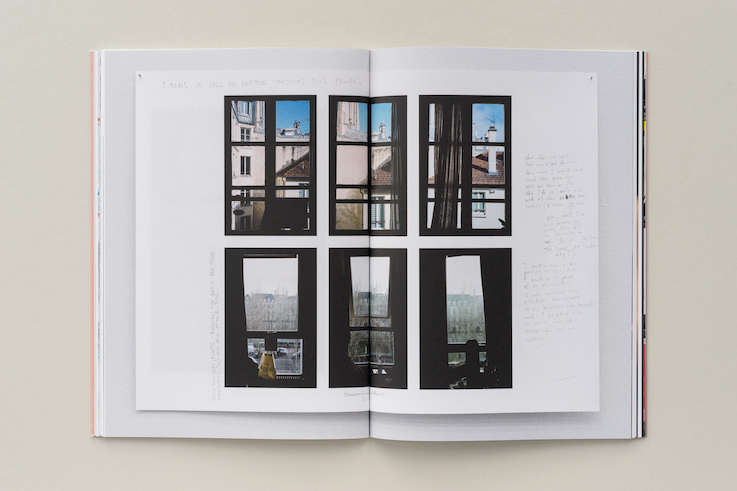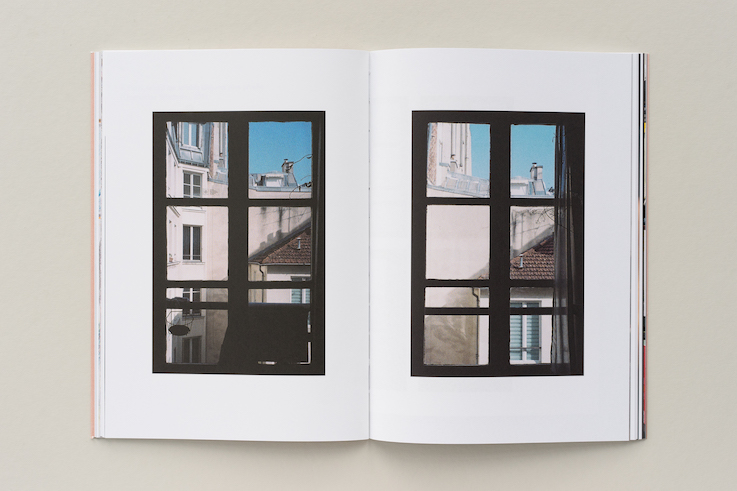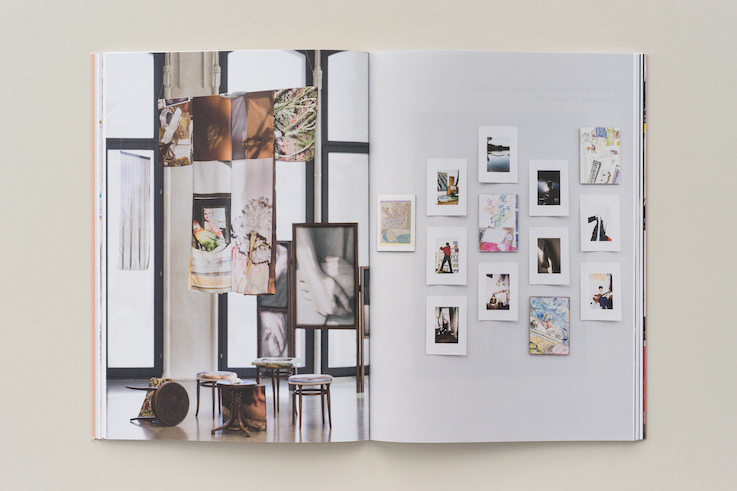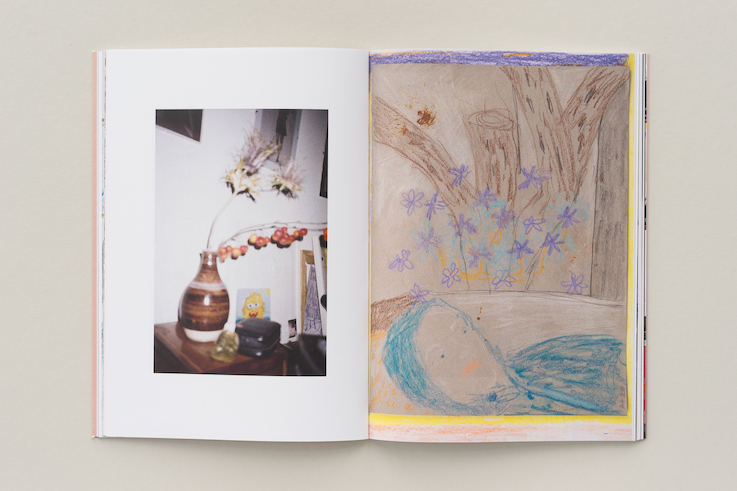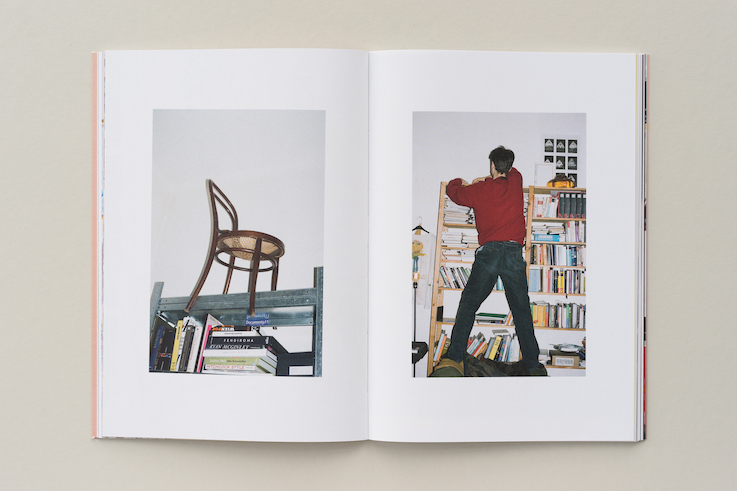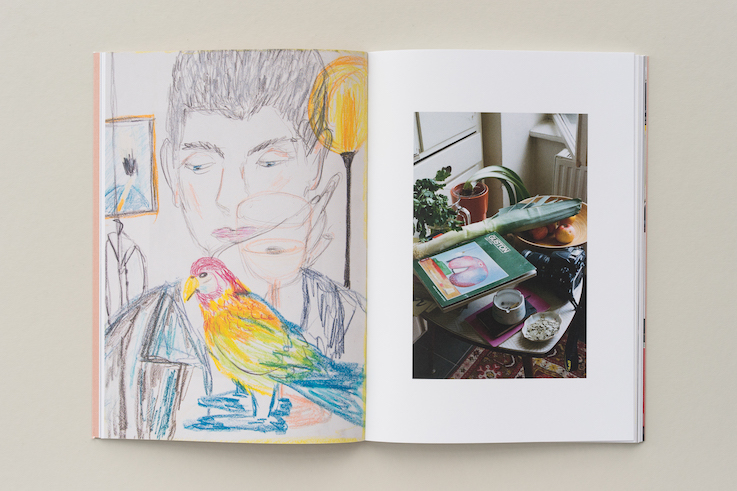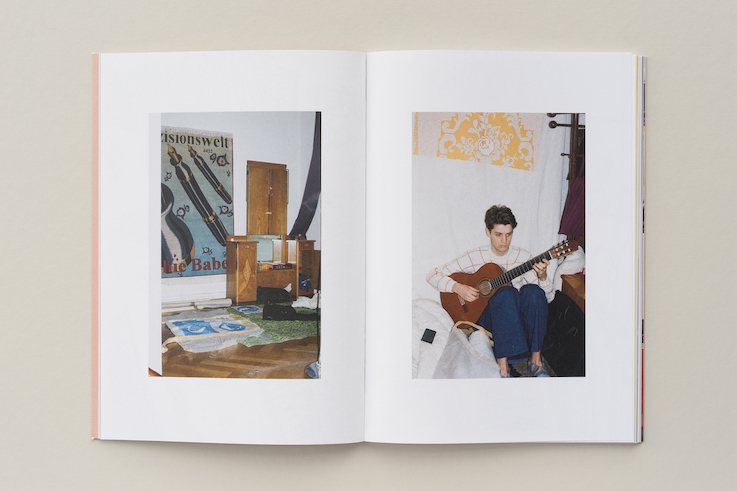Presseinformationen
Anaïs Horn: Die Hand voller Stunden, so kamst du zu mir
Infos
Hrsg. von Reinhard Braun.
Anlässlich der Ausstellung »Anaïs Horn: Die Hand voller Stunden, so kamst du zu mir«, Camera Austria, Graz, 7.7. – 1.8.2021.
Mit Textbeiträgen von Attilia Fattori Franchini und Wendy Vogel (eng.).
Edition Camera Austria, Graz 2021.
96 Seiten, 18 × 25,4 cm, 75 Farbabbildungen.
€ 24,– / ISBN 978-3-902911-63-6
Buchpräsentation mit Attilia Fattori Franchini, Autorin und Kuratorin, und der Künstlerin
8. 9. 2021, 19:00, Parallel Vienna, ehem. Semmelweisklinik, Hockegasse 37, 1180 Wien
Pressedownloads

Pressetext
Die englischsprachige Publikation, welche die Ausstellung Die Hand voller Stunden, so kamst du zu mir von Anaïs Horn begleitet, ist eine persönliche Reflexion der Künstlerin über die aktuelle Situation der körperlichen Distanzierung und Ungewissheit. Seinen Titel Paul Celans Gedichtband Mohn und Gedächtnis (1952) entlehnend, verbindet das Projekt das Visuelle mit dem Poetischen, zerteilt Bilder und vereint verschiedene Techniken, Materialien, Formate und Register. Mit ihrer Erkundung von Händen als Inbild von Nähe, Zuneigung und Fürsorge, aber auch als nonverbales Ausdrucksmittel, macht Horn ein persönliches Erlebnis zum Ausgangspunkt eines fotografischen und skulpturalen Streifzugs, einer Form, die ständig offen bleibt für das Werden. Analog zu der ereignisreichen Praxis Anaïs Horns entfaltet sich die Publikation tagebuchartig und entwickelt sich als ein vom Medium Fotografie und seiner Dekonstruktion geleiteter Bewusstseinsstrom. Eine emotionale Spannung zwischen biografischen Momenten und historischen Bezügen, Objekten und Bildern erzeugend, gibt Horn offen Einblick in intime Erinnerungen und Umgebungen, verweist auf eine Verschiebung vom öffentlichen zum privaten Raum. Mit einem Sinn für Theatralik inszeniert, weiten sich die Bilder auf Plastiken, Möbel, durchscheinende Vorhänge und Kleidungsstücke aus, die die Betrachtenden in das Geschehen verwickeln und gemeinsam ein Déjà-vu hervorrufen.
Auszug aus: Attilia Fattori Franchini »Hands Hanging Around in Oblique Participation«
The hand that extends toward the fruit, the rose, or the log that suddenly bursts into flames—its gesture of reaching, drawing close, or stirring up is closely related to the ripening of the fruit, the beauty of the flower, and the blazing of the log. If, in the movement of reaching, drawing, or stirring, the hand goes far enough toward the object that another hand comes out of the fruit, flower, or log and extends toward your hand—and at that moment your hand freezes in the closed plenitude of the fruit, in the open plenitude of the flower, or in the explosion of a log which bursts into flames—then what is produced is love.1
It is not surprising that the entire ethical question of responsibility commences with two hands. History recounts that Pontius Pilate, governor of the Roman province of Judaea (26–36 AD), was reluctant to express his judgment over the trial of Yeshua Ha-Nozri (Jesus of Nazareth).
To reinforce the uncertainty of his deciding position and to stop a possible upsurging riot, Pontius Pilate washed his hands, an iconic gesture, accompanying it with the words: “I am innocent of the blood of this just person.” The story is also fictionally narrated in the prologue to Mikhail Bulgakov’s Master and Margarita (1928–40 / 1967). Pontius Pilate is described as affected by a migraine, confused in the moment of judgment, prophetically sympathetic toward the young man. Iconographically, he is often depicted in the act of intently washing his hands, the words signified by the gesture, agency washed away.
Are images aware of the histories they carry? Ever since the advent of post-structuralism, scholars have struggled to move beyond the limitations inherent in the structuralist idea that aesthetic experiences could be appropriately modeled upon the notion of the sign. Washing your hands as a sign of deferment. An attitude inscribed into an image, a fragment of the past that curls up into the present moment.
Anaïs Horn’s practice is eventful. It unravels diaristically and evolves as a stream of consciousness determined by the medium of photography and its deconstruction.
A series of scenes that, when pieced together, create a narrative capturing an intimate vantage point. . . .
The exhibition Die Hand voller Stunden, so kamst du zu mir (Your Hand Full of Hours, You Came to Me) at Camera Austria, Graz, is an intimate reflection on the current moment of physical distancing and uncertainty. . . .
1 Jacques Lacan, Transference: The Seminar of Jacques Lacan, Book VIII, ed. Jacques-Alain Miller, trans. Bruce Fink (Cambridge: Polity Press, 2015), p. 52.
Anaïs Horn, born in Graz (AT), lives and works in Paris (FR) and Vienna (AT). In her artistic practice, she often interweaves literature/text and photography/video/drawing, exploring moments of intimacy with a special interest in topics such as liminality and coming-of-age. She observes people and their spaces, gently crossing borders, opening up the private and making intimacy a sensual experience. In the process, she investigates time, memories, transience, the body and its traces, the cautious intrusion of privacy, and the aesthetics of reality and fugacity. Her images take shape, exploring surfaces, haptics, and objects and often unfolding into spatial installations. With a background in literature and linguistics and a master in communication design, Horn graduated from The School for Artistic Photography Vienna (Schule Friedl Kubelka) in 2014. She has been awarded several scholarships and residencies, for instance at the Cité Internationale des Arts, Paris (2017–18 and 2021), Plovdiv, European Capital of Culture 2019 (BG), the ISCP New York (US, 2020, 2022), and AiR Trieste (IT, 2021). The artist’s book is an important medium for her work: her photobook Fading was published by DCV, Berlin (DE), in 2021. In 2020, her artist’s books Je suis malheureuse et heureuse and How do you feel about “Lou”? (in collaboration with Eilert Asmervik) were published by META/BOOKS, Amsterdam (NL). Je suis malheureuse et heureuse was shortlisted for the Photo-Text Book Award at the photo festival Les Rencontres d’Arles 2021.
Bildmaterial
Die honorarfreie Veröffentlichung ist nur in Zusammenhang mit der Berichterstattung über die Ausstellung und die Publikation gestattet. Wir ersuchen Sie die Fotografien vollständig und nicht in Ausschnitten wiederzugeben. Bildtitel als Download unter dem entsprechenden Link.

